Reading spots mushroom across capital as local government, residents both take action
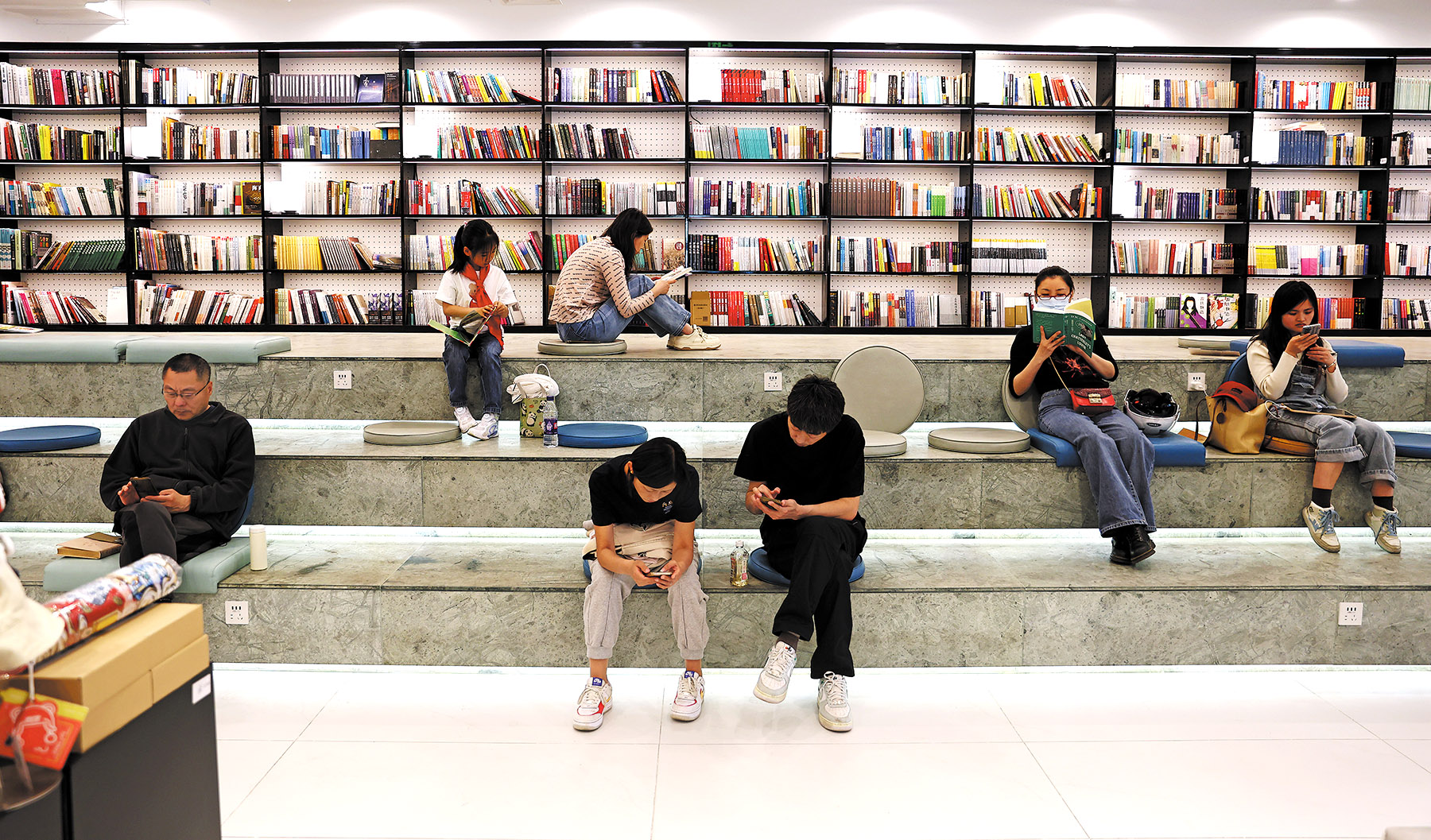
Amid the hustle and bustle of a big city like Beijing, sitting in the sunshine, sipping a cup of coffee and reading a relaxing book — even on the weekend — can seem like a luxury.
To address the challenge of finding "hush hour", more community libraries, some built with funding from local governments and the ingenuity and dedication of residents, are mushrooming across the country's capital.
The whole point is to create a cultural atmosphere in the area and have residents actively engage in cultural life. Books are one way to achieve this, and the added value the place offers can also benefit the neighborhood.
Peng Yanshu, director of Fangzhuang Art and Culture Center
By 2021, more than 90 percent of the city's population had easy access to community libraries at 6,830 locations, according to the Beijing Municipal Bureau of Culture and Tourism. The bureau said its goal is to have complete coverage of the city by 2035.
Peng Yanshu, director of the Fangzhuang Art and Culture Center, is one local who took matters into her own hands. The 36-year-old helped set up a community reading center after moving from Beijing's northwestern Haidian district to southern Fengtai district in 2021. She was concerned the area near her new home lacked art and cultural facilities.
READ MORE: Libraries now offer students far more than books
In the 1990s, Fangzhuang was known as a wealthy neighborhood and housed the city's largest and most upscale residential complexes. However, in recent decades it went into decline as the northern and eastern parts of Beijing underwent rapid development.
Peng's first impression of the neighborhood was of buildings with peeling plaster and outdated facilities, interspersed with restaurants and the occasional mom-and-pop shops.
However, in recent years, affordable house prices have attracted buyers who are willing to commute, while the original community is aging and demanding more cultural offerings.
Peng said the urgent need to build an art and culture center encouraged her to mobilize all possible resources to get the job done. "The site initially served as a vegetable market. It later fell into disrepair, became a desolate space, and had an unfinished building on it when I took over the project in July 2021," she said.
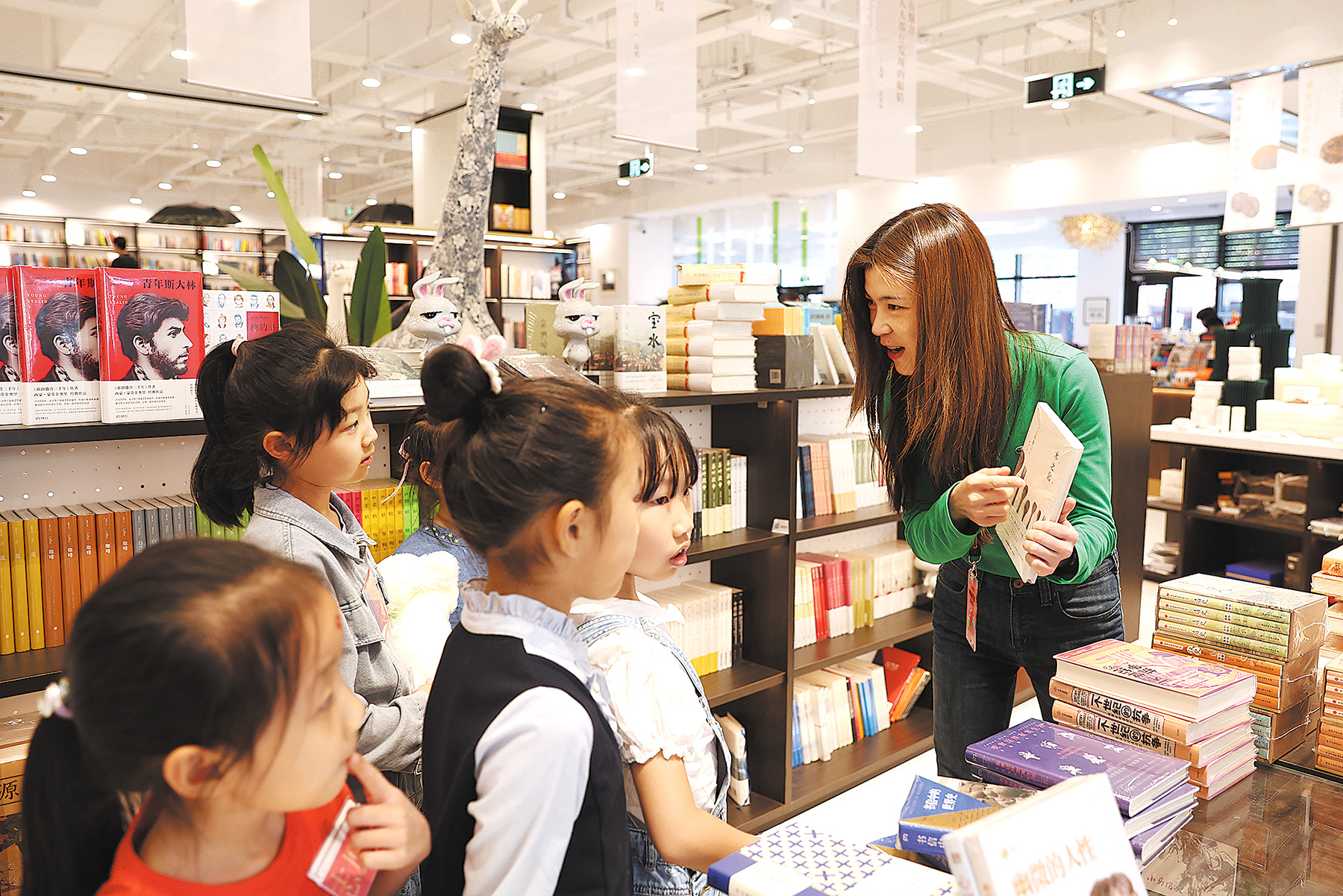
DIY library
Peng, who has a doctorate in philosophy from the Renmin University of China in Beijing, said building the center had to overcome several major challenges such as one project manager quitting and the fluctuating cost of materials.
However, the Fengtai district government offered financial support, which included construction capital of 18.66 million yuan ($2.58 million) and asking those who have a strong interest in culture to invest in the center.
The construction fund covered the cost of the center's completion and decoration, including payments to the contractor, construction company, and design firm.
"The potential risks involved included the budget exceeding the payment, which is why the building was previously unfinished," Peng said. "My primary goal was simply to complete the renovation and provide a pleasant reading place for the residents."
During the building phase, Peng discovered that the general contractor was considering raising his price, so she controlled costs by directly sourcing materials. This allowed her to invest the funds in other parts of the center, such as the art exhibition area and interior decoration materials.
"It's a complicated process, and I learned all the procedures by doing them," said Peng.

She also implemented innovative cooperation strategies with a well-known bookstore and an audio production company by giving them affordable rent for spaces in the center.
"The whole point is to create a cultural atmosphere in the area and have residents actively engage in cultural life," she said. "Books are one way to achieve this, and the added value the place offers can also benefit the neighborhood."
Covering more than 5,000 square meters, the Fangzhuang Art and Culture Center, with a white modern appearance, opened on Oct 15. Since then, it has been a beacon for local residents.
Upon entering the lobby on the first floor of the center, visitors are greeted by a sequence of tiered desks, book stacks, and inviting social spaces. On the west side, soft blankets and comfortable furniture are set up in a large, open, sunny area designated for children and teens. The area is separated by a large glass partition, which allows parents to keep an eye on their children.
A staircase leads to a cozy basement where coffee and desserts are served.
"It's an open space," said Peng. "During weekends and holidays, kids can take science courses in a separate meeting room on the basement floor, while upstairs, most areas are used for rental space."
The second floor houses a temporary art exhibition, while the third floor functions as a theater that can hold about 300 people. "This has triggered a positive ripple effect. Since October, over 5,000 residents from Fangzhuang have visited our center, and participated in more than 70 cultural events. This has led to increased interest, with many choosing to spend their free time reading books here," Peng said.
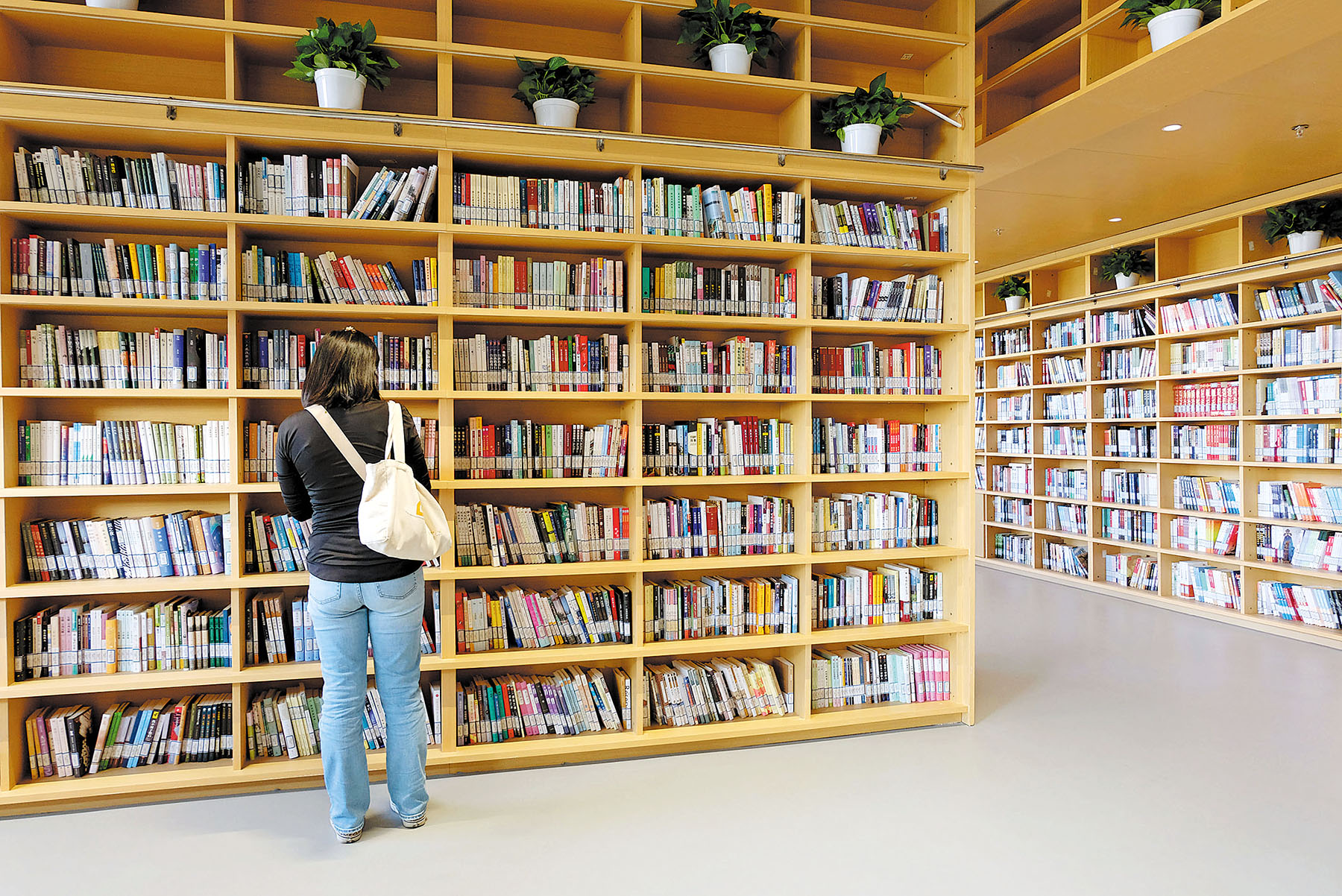
Books that bind
About 30 kilometers north of Fangzhuang is Changping district, which is home to Huilongguan, one of Asia's largest residential communities that houses approximately 300,000 people.
The crowded neighborhood, well-known for its affordable housing, has long struggled with a lack of high-quality facilities. To address this, since 2018 the Beijing municipal government has invested heavily in the area to try and keep the community lively and diversified. This included 827 million yuan to build the Huilongguan Sports and Culture Park, which includes a community library that spans 6,300 sq m.
The library's curator, Cui Yaona, said it aims to serve residents by offering a wide range of books for people of all ages and a welcoming space for them to spend their free time.
"The library fosters a true bond with the community," Cui said. "Books connect us. Seeing the concentration, curiosity and peacefulness on people's faces sparked by words they've read is to know that the library is a powerful force for making a connection."
The Huilongguan community library, which has 55,000 books, also has a volunteer librarian program for local residents.
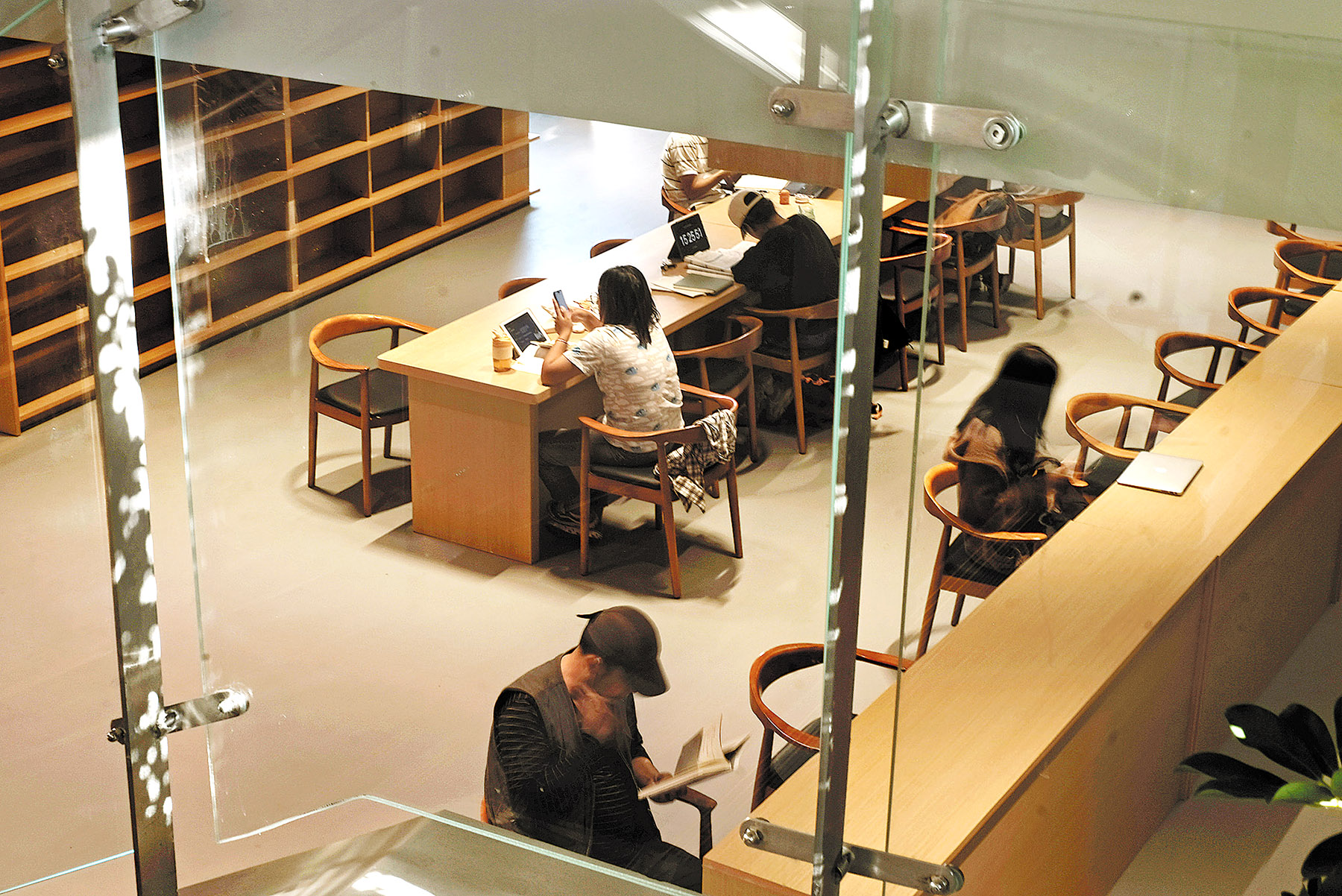
Sun Yi is one of the volunteers. A Beijing native who lived for 30 years near Wangfujing Street, which has some of the city's biggest bookstores, Sun and her parents relocated to Huilongguan in the 2000s.
"I've always loved reading," said the 52-year-old. "During my childhood and teenage years, I often went to the Xinhua bookstore in Wangfujing. So when I heard about the need for volunteers at the community library, I didn't hesitate to sign up.
"Being able to immerse myself in an ocean of books has given me a sense of self-satisfaction and spiritual value," said Sun, who recently retired from her accounting job.
"It's a joy to be part of the volunteer team, especially seeing young people in Beijing actively improve themselves during their spare time. When I help readers find a book they want and they say a word of thanks, I feel rewarded."
According to Cui, about 100 volunteers work at the library, and a large number of college students contribute their time during the winter and summer holidays.
"I hope our library becomes a place that you don't need a reason or invitation to visit," Cui said. "There's no need to reserve a spot or buy a coffee. You can simply drop in to read a book, find a quiet place to study or work, or explore anything from computer coding to romance novels."
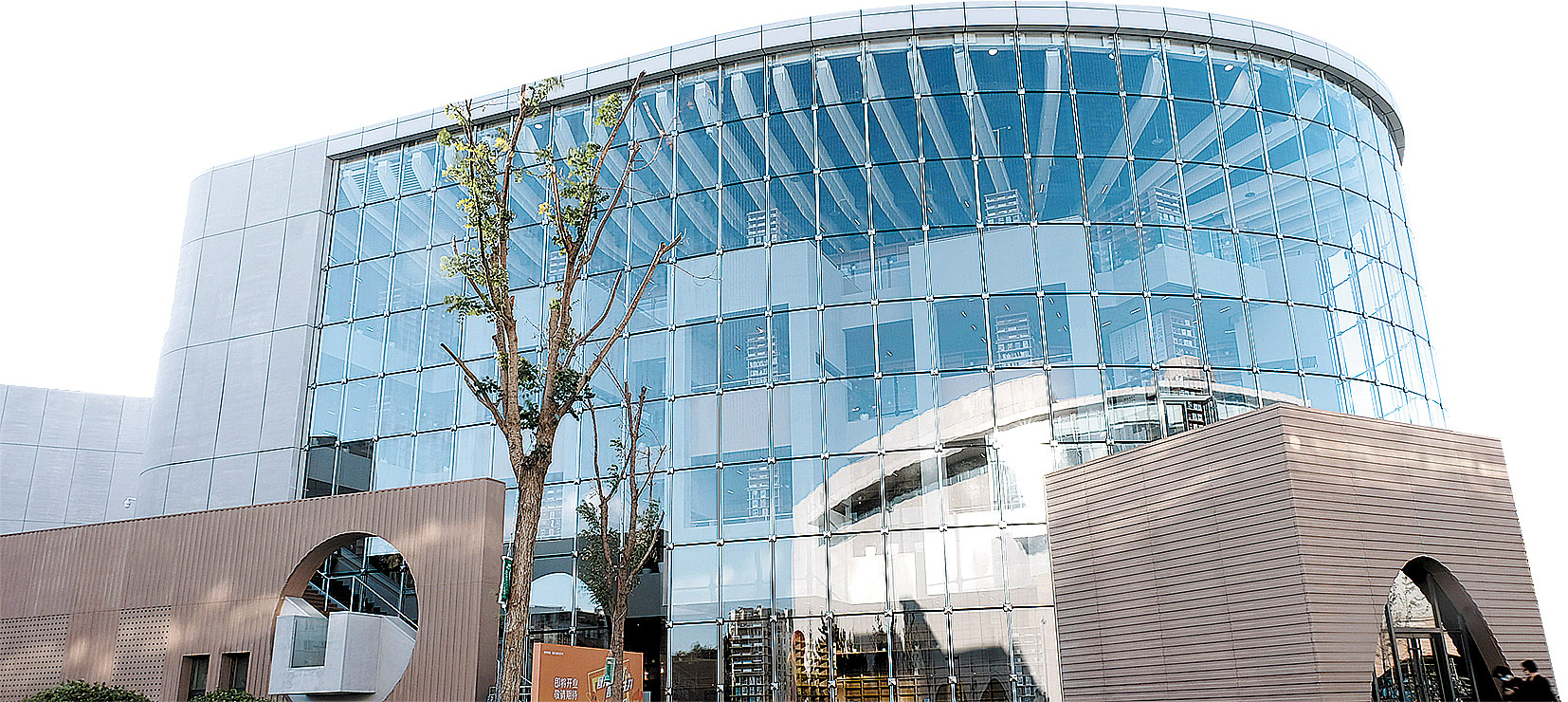
Culture vultures
A younger generation of readers — most of them born after the 1990s and many preparing for work exams — now occupies community libraries.
Sweet Town, a community library in Chaoyang district established in 2021, is popular with these young bookworms.
Designed in a modern style, it has white spiral staircases that cascade between stepped tiers of bookshelves that line the walls. The study carrels have been organized into a round space decorated by soft pads while comfortable nooks are illuminated by ceiling lights.
In a sunny corner, next to a quiet coffee bar, armchairs beckon readers.
The library is part of an innovative business model that combines a library, bookstore and exhibition space, according to the Beijing municipal government website, and has a collection of over 40,000 books covering diverse genres.
This model not only meets the diverse needs of the public, but helps innovate the operations of brick-and-mortar bookstores, according to the website.
Pi Ruoyi, 26, a primary schoolteacher, has visited Sweet Town a dozen times in the past year and often sits in the windowless area downstairs.
A bookworm for 20 years, she has always sought a simple place that offers a reassuring hush so she can settle down to read and study.
Pi came to Beijing at the end of 2020 to look for work. Although she landed a job in 2021, she soon realized it wasn't quite what she had envisioned.
ALSO READ: New doors open for the visually impaired in China
The young teacher is now pursuing a master's degree in economics.
Pi said the library's special environment helps her concentrate on her studies.
"Finding a library is easy," she said. "But for me, truly immersing myself in a dedicated study atmosphere for an entire day requires a certain kind of energy. A place with thoughtful design and good service definitely boosts my confidence and strengthens my resolve to focus."
At weekends, Sweet Town is visited by parents who bring their children to read books and look at illustrations. Visitors also show up to take photographs of the vibrant space.
Hao Wei, deputy director of Fengtai District Library, said the concept behind Beijing's network of community libraries is to allow residents to borrow books and read at their convenience.
Despite the convenient locations and digital services, some community libraries are still facing challenges such as limited and outdated book collections and maintaining cleanliness. These factors may deter potential visitors, Hao said.


